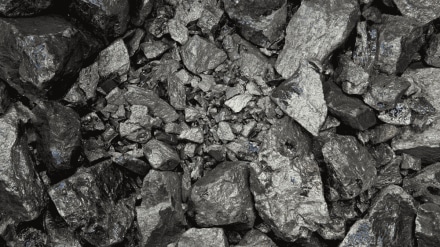India is planning to establish its own rare earth magnet production within the next year or two, with support from automakers and parts manufacturers, along with the expected rollout of incentives by the Indian government, according to a Reuters report.
The move to locally manufacture rare earth magnets—a critical component used in electric vehicles (EVs) and electronics—aims to reduce the country’s reliance on China, which produces around 90 per cent of global supply. China imposed export restrictions in April and, although it has resumed some supplies to the United States and Europe, Indian companies are still awaiting clearance from Beijing.
Mahindra and Uno Minda show interest
According to a Reuters report, Mahindra & Mahindra and auto parts supplier Uno Minda are exploring plans to produce rare earth magnets in India.
A senior government official told Reuters, “Some companies have shown interest in investing or setting up rare earth magnet production, including Mahindra.” He added, “It will take a year or two to have our own production… but we have to find ways to be independent.”
Mahindra, which recently launched two new electric SUVs, has already expressed interest in partnering with a manufacturer or entering a long-term contract.
A Reuters source close to the discussions noted that Mahindra believes the investment required to start magnet production is not that high.
Uno Minda, which supplies components to major automakers like Maruti Suzuki, also reportedly showed interest during a June meeting with the Ministry of Heavy Industries.
A final decision by the two companies on the timeline of any investment into rare earth magnet production will depend on the incentives offered by the government and the availability of raw materials, reports Reuters.
Government mulls Rs 25 billion incentive plans for magnet makers: Report
According to Bloomberg, the Indian government is planning an incentive programme worth as much as Rs 25 billion ($290 million) for private-sector firms manufacturing these magnets.
The policy blueprint is likely to be submitted for cabinet approval soon, reports Bloomberg, citing people familiar with the matter. The final outlay for the programme is subject to internal consultations and may change.
50 per cent local sourcing mandate
Citing the proposed blueprint, Bloomberg reported that the government will invite companies to bid for annual production capacities ranging between 500 and 1,500 tonnes.
To qualify, manufacturers must meet strict norms, including a requirement that at least 50 per cent of the magnet’s value comes from locally sourced neodymium-praseodymium oxide—a key ingredient for making high-performance magnets. This threshold will rise to 80 per cent by the fifth year.
Companies who can participate in rare earth production
According to Bloomberg, billionaire Anil Agarwal’s mining giant Vedanta Group, Sajjan Jindal-led JSW Group, and EV parts maker Sona BLW Precision Forgings Ltd are among those who have shown interest in this initiative.
Maruti, which has already warned of production delays due to China’s export restrictions, could also consider participating.
Auto component maker Sona Comstar had earlier indicated its intent to begin rare earth magnet production in India. The firm supplies gears and motors to global players like Ford and Stellantis.
Sona BLW, one of India’s top EV motor manufacturers, is also keen to secure its supply chain. CEO Vivek Vikram Singh told Bloomberg that the company may consider collaborating with a partner to build the required technology.
India calls for responsible use of rare earth resources at BRICS summit
Prime Minister Narendra Modi, speaking at the BRICS summit in Rio de Janeiro, emphasized the importance of not weaponising critical minerals. “It’s important to ensure that no country uses these resources for its own selfish gain or as a weapon against others,” he said.
The South Asian nation aims to support three to four large companies in the production of about 4,000 tonnes of neodymium and praseodymium-based magnets using locally mined raw materials over a period of seven years, according to Bloomberg, which claims to have seen the proposal.
IREL gears up to prioritise domestic demand over exports
While India holds the world’s fifth-largest reserves of rare earth minerals, mining remains tightly controlled. Most materials are handled by the state-run Indian Rare Earths Ltd (IREL), which produced around 2,900 tonnes of ore in 2024. A portion is exported to Japan, but the rest is reserved for atomic and defence needs.
Following the disruption in Chinese supplies, IREL now plans to halt exports and expand domestic mining. JSW Steel has also shown interest in rare earth mining in India, but any such move would need government approval. According to sources, mining could take several years, unlike magnet manufacturing, which is faster to set up.
IREL is also exploring international collaborations, including studies in Myanmar and cooperation with five Central Asian nations for mining critical minerals.
India’s rare earth push still in early stages
With its EV sector expanding rapidly, India is making an aggressive effort to ensure future-ready supply chains. However, extracting rare earths is economically challenging and often environmentally risky. Currently, India’s efforts remain in the early stages. State-run Khanij Bidesh India is pursuing overseas projects in countries like Argentina, Zambia, and Australia, according to Bloomberg.
